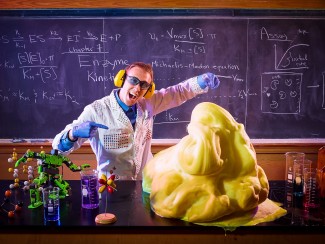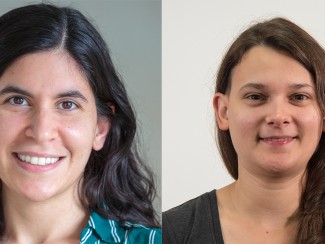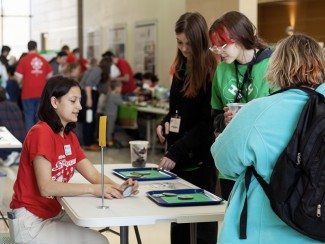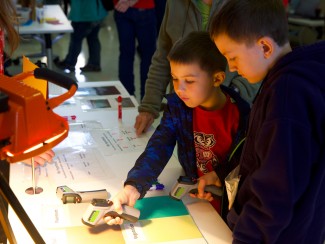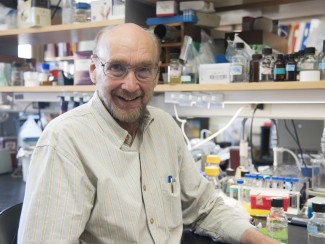A look at what motivates UW–Madison students studying energy issues
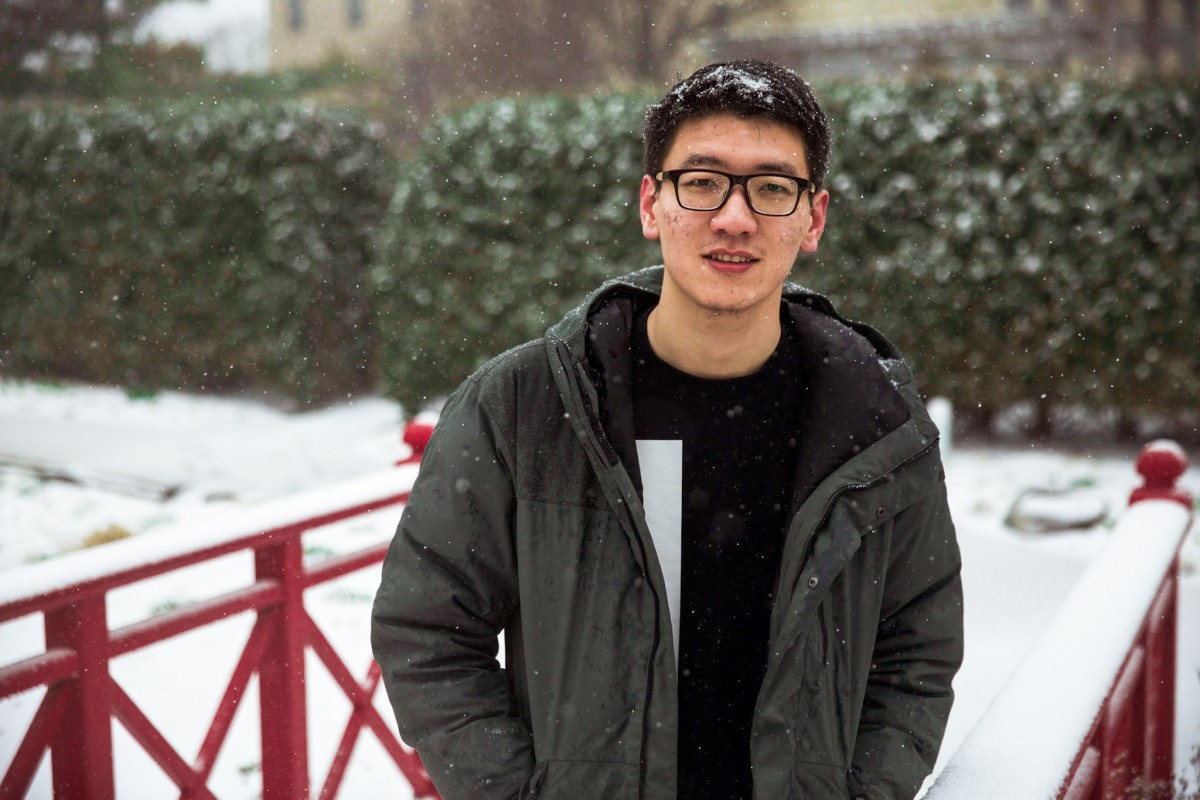
Peidong Wang
Junior majoring in mathematics, and atmospheric and oceanic studies
“I research ambient formaldehyde, which comes from a number of sources, including industrial emissions, fuel combustion, and natural sources. I am interested in formaldehyde because it is the number one outdoor carcinogen in the U.S., and because it is an important precursor of ground-level ozone, which further triggers respiratory diseases such as asthma. In ground and satellite observations, we find that formaldehyde has increased 20-30 percent in the past ten years in most regions in the U.S. Our energy systems play a part in this increase, and there is still more we can do to benefit public health.”
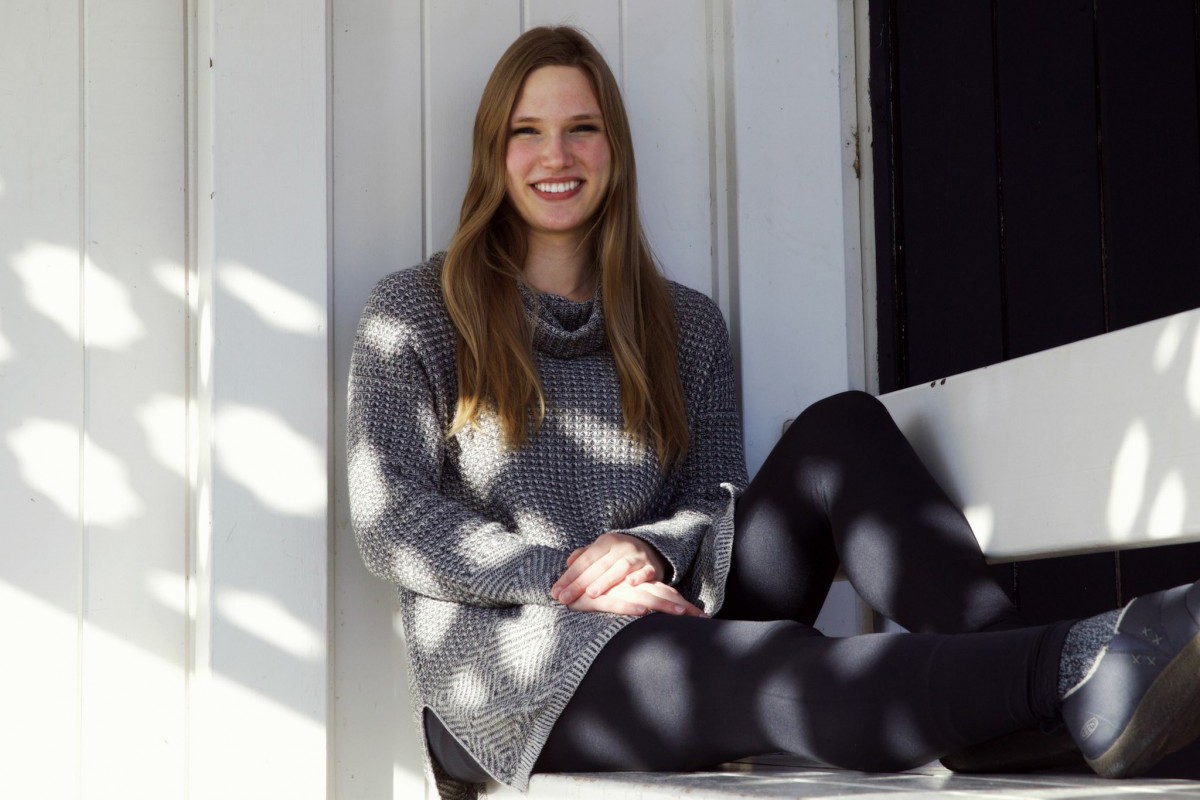
Mattie Bindl
Sophomore majoring in atmospheric and oceanic studies
“The United States has a wonderful opportunity to be a role model in the world through innovations in sustainable energy and climate change research. I began my studies at UW–Madison as an astronomy major, but throughout my first year I was introduced to individuals in the field of sustainable energy. Ultimately, I chose to study sustainable energy and global climate change because I wanted to directly impact and improve our national and global community.”
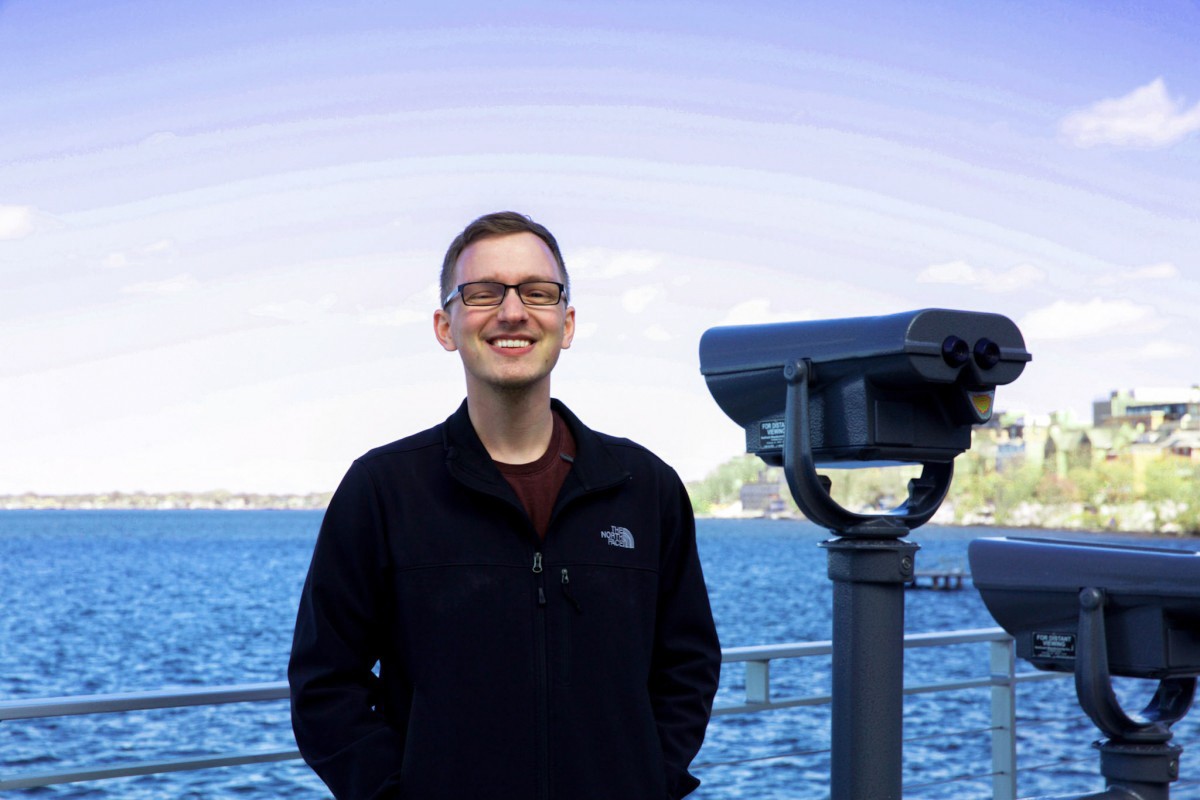
Alex LaReau
Graduate student in bacteriology
“The biggest reason I got interested in bioenergy was because of how we obtain energy right now. Essentially, we have burned fossil fuels for decades and it is having an obvious effect on the climate. The logical question would be, how can we stop using those types of fuels and use something that might be better for the environment and, in general, more sustainable? I was really interested in the idea that you can use plants that are taking CO2 out of the earth and then ultimately produce biofuels from them. I also think biofuels are important from an energy dependence perspective. I like the idea that we could grow these plants and then use them to make biofuels in an independent way.”
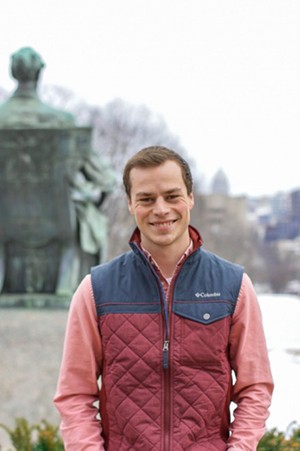
David Abel
Graduate student in the energy analysis and policy program (Nelson Institute)
“Energy is pervasive in everything we do, especially in the 21st century. One can hardly go 60 seconds at a time without relying on energy in some way. My research at the intersection of air pollution, public health, and energy demonstrates just how important it is to understand the ways we are creating and using energy. Energy use is responsible for many of the 100,000 U.S and 7 million global deaths annually from air pollution exposure, but the solutions to this problem also lie with energy decision making. I choose to study energy because understanding the impacts and benefits of our energy decisions paves the way for a bright and healthy future.”
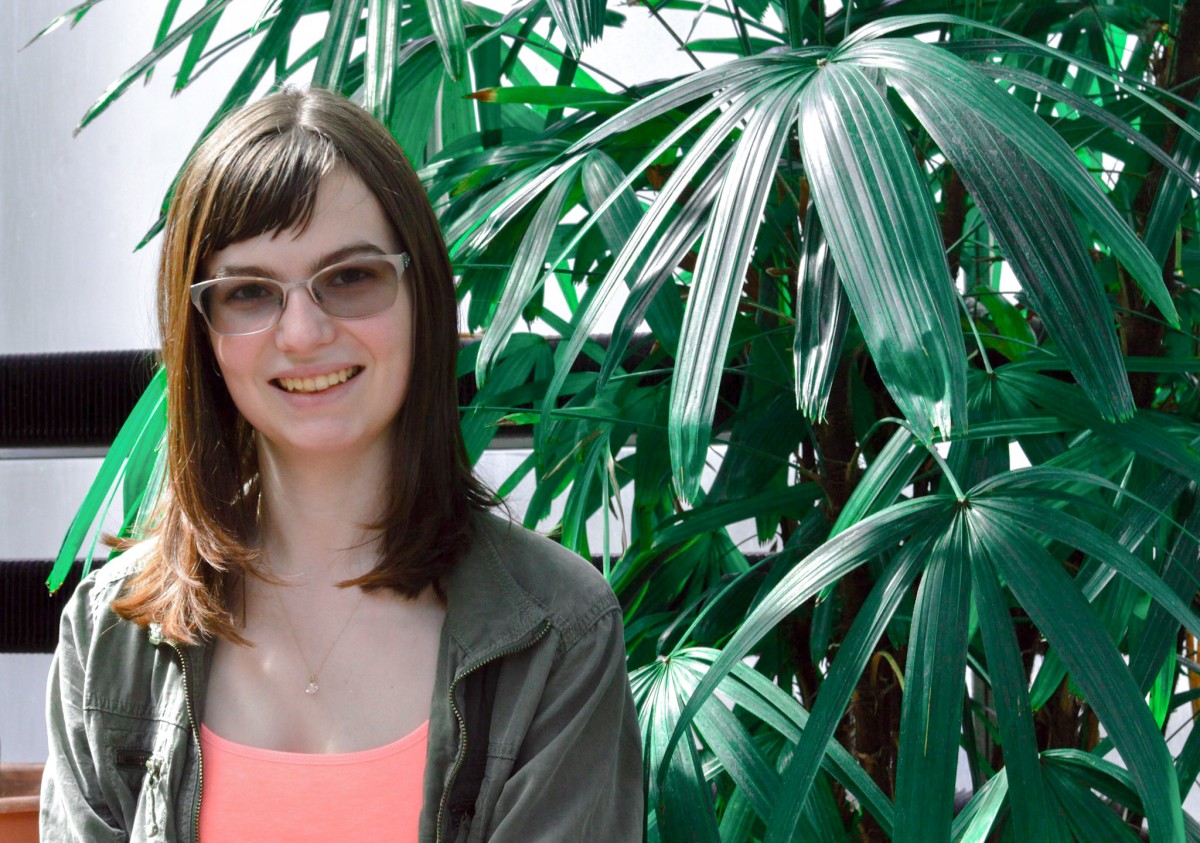
Stephanie Sorensen
Senior majoring in chemistry and Spanish
“I got into energy after getting a job working in a Great Lakes Bioenergy lab here on campus, and seeing chemistry being done that I didn’t even know was possible. I am a big organic chemistry person, it’s my passion. So being able to do organic chemistry sustainably and in a way that helps further the creation of biofuels and the breakdown of biomass makes me feel good. The deconstruction of biomass, specifically lignin, is a new potential source for aromatics and other important compounds in the chemical industry. These compounds can then be adapted to be used in further improving sustainable and renewable processes that will help us in this energy crisis.”

